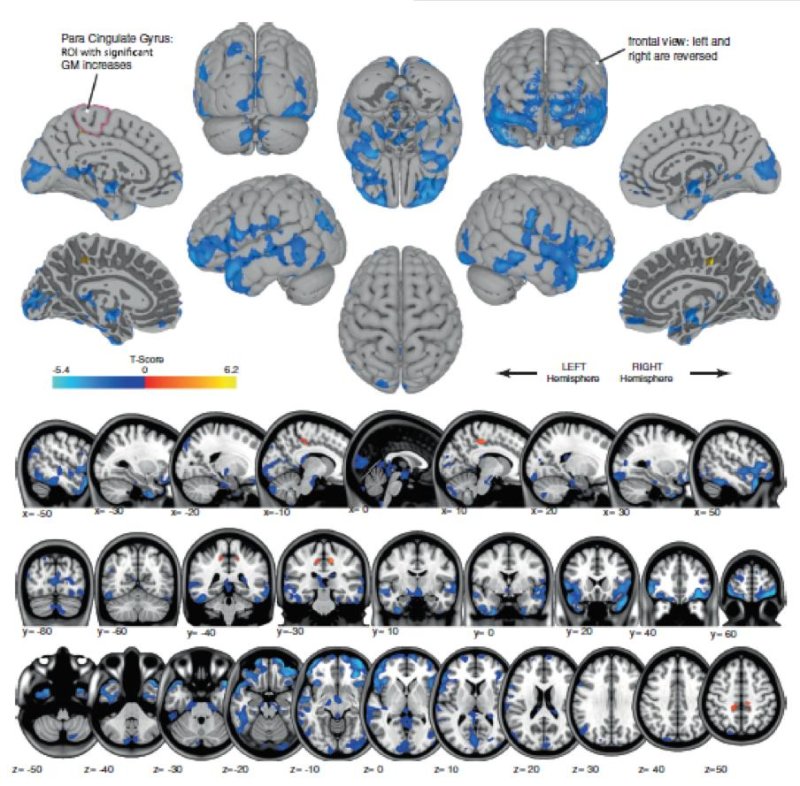The brain changes were most pronounced in astronauts who spent more time in space. Photo by University of Michigan
Feb. 1 (UPI) -- When astronauts come back from a stint aboard the International Space Station, their brains are not as they were when they left Earth.
Scientists at the University of Michigan compared brain scans of 27 astronauts before and after spaceflight. Of the 27, twelve spent two weeks on shuttle flight missions and 14 spent six months on the space station. Researchers obtained the MRI scans from the NASA Lifetime Surveillance of Astronaut Health program.
The brains of all 27 astronauts showed increases and decreases of gray matter volume in different parts of the brain as a result of their time in space. The longer astronauts were in space, the more prounced the changes.
"We found large regions of gray matter volume decreases, which could be related to redistribution of cerebrospinal fluid in space," lead researcher Rachael Seidler, a professor of kinesiology and psychology at Michigan, said in a news release. "Gravity is not available to pull fluids down in the body, resulting in so-called puffy face in space. This may result in a shift of brain position or compression."
Seidler and her colleagues detailed their findings in the journal Microgravity.
Scientists found significant increases of gray matter volume in areas of the brain linked with balance and leg movement. The volume growth was most pronounced for astronauts living on the space station, who were constantly learning to adapt to microgravity.
"It's interesting because even if you love something you won't practice more than an hour a day," Seidler said. "In space, it's an extreme example of neuroplasticity in the brain because you're in a microgravity environment 24 hours a day."
Scientists are keen to explore the neural changes further, as they have yet to characterize all of the changes. Seidler is specifically interested to find out how long the neural changes last once astronauts are back on Earth.















